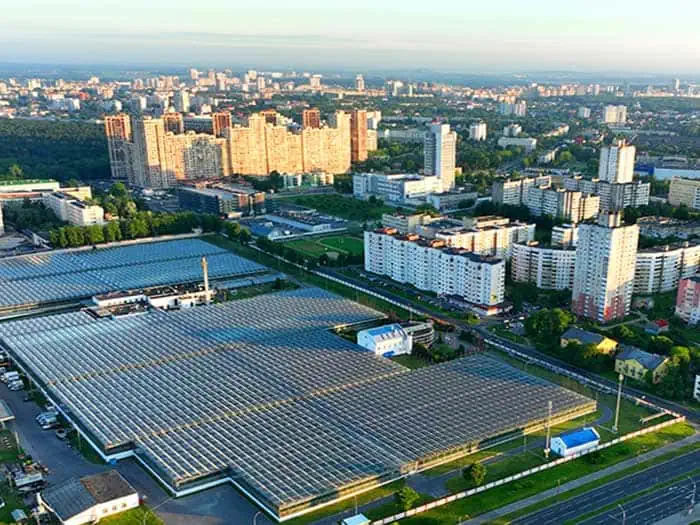


One of the unique aspects of SCS Engineers’ environmental services is our holistic approach to odor management for plant touching facilities. We understand that addressing minor sources of odor can lead to significant improvements in overall air quality. SCS solutions focus on chemical and physical controls and operational changes that can provide stable and reliable odor emissions abatement.
SCS’s commitment to environmental responsibility is evident in our work. Our engineers and scientists employ state-of-the-art technologies to assess odor issues from plant touching businesses and design cost-effective plans to mitigate off-site odor impacts, improving the air quality of nearby communities. These solutions are attractive to plant touching commercial cannabis operations and greenhouses that cultivate, manufacture, and transport cannabis.
Solutions for controlling the advent of odors and mitigating them stem from solutions useful in other facilities, including landfills, composting facilities, food processing plants, and wastewater treatment plants. The SCS Engineers’ approach, building on the success of these operations, utilizes specialized tools and field-proven technologies that determine the specific odor footprint of a particular facility or greenhouse. Collecting continuous measurements and using data enables the assessment of concentrations in real-time and multiple locations and sources within a facility. This method determines relative odor levels and spatial/temporal fluctuations in odor-causing emissions. Using these data and measurements, the team builds a plan to control and mitigate impacts, creating tailored solutions that address them more effectively and for the long term, which is cost-conscious.
At the 2023 Cannabis Conference, SCS engaged with municipalities, cannabis producers, dispensary operators, and technical firms to discuss the application of these technologies within the cannabis industry. Our odor monitoring and management expertise aligns perfectly with the industry’s need for responsible and sustainable practices. Odor control also comes with secondary benefits, such as improving cultivation yield, reducing mold impacts, and improving indoor air quality.
Additional Resources:

The cannabis industry gathered at the Paris Hotel in Las Vegas for the annual Cannabis Conference, an industry-leading event for professionals from plant-touching cannabis businesses. Hosted by Cannabis Business Times, the conference has grown over the years to become a global hub for networking, education, and innovation.
The Cannabis Conference attracts thousands of attendees from across the United States, Canada, and nearly 30 other countries. With a focus on education, the conference provides a platform for professionals to explore the latest trends, challenges, and solutions in the cannabis world. It’s where leaders in cultivation, business, and retail innovation gather to share their experiences and inspire others to thrive in this ever-evolving industry.
While the event covered a wide range of topics, we hope SCS Engineers (SCS) brought a breath of fresh air to the event by showcasing environmental solutions focusing on the environmental challenges specific to the cannabis industry. What set SCS apart at the conference is its unique focus on odor management, a critical issue often overlooked in the cannabis industry. And one that can cause costly nuisance complaints or, in some cases, prevent permitting an operation.
Odor Pollution Assessment and Mitigation
Odor pollution is a significant concern for cannabis businesses. Over 50% of air pollution complaints received by regulatory agencies involve an odor component. Having a mitigation strategy helps smooth and speed the permitting process. The environmental engineers and consultants offer a comprehensive range of odor assessment and mitigation services tailored specifically for industrial operations.
Application of Industry Technologies
Project Director Paul Schafer, Project Managers Eva Luu and Christopher Petro, and Marketing Coordinator Jodie Rukamp were on hand to greet curious attendees and answer questions about odor management. The exhibitor hall was a hot spot of attention for SCS, and for good reason. These industry experts brought their olfactometer and showcased case studies for the SCS-ent-i-PED cannabis odor surrogate instrument. The team and new technologies drew attention, stirred conversations about odor management, and spotlighted discoveries by SCS while solving odor problems for clients whose greenhouses and operations often coexist near neighborhoods and more urban areas.
Conference Keynotes and Case Studies
While attending the Cannabis Conference, the SCS team attended several keynote speaking events, including Surviving The Market Crash, where cannabis cultivators Stone Road, Veritas Fine Cannabis, and SCS’s Carpinteria, California client Autumn Brands spoke on the subject of the strategies for everything from saving on labor costs to how and when automation can be useful.
Presenters discussed evaluating operational structures and helping attendees evaluate many aspects of their business to survive a market downturn and thrive over the long term. Autumn Brands discussed internal resource management and relayed the significance of the cannabis market downturn during the last several years. SCS was instrumental in helping Autumn Brands reduce their capital expenses related to long-term odor management and develop meaningful empirical connections between sulfonated compound surrogates relative to nuisance cannabis odors.
Additional Resources:
